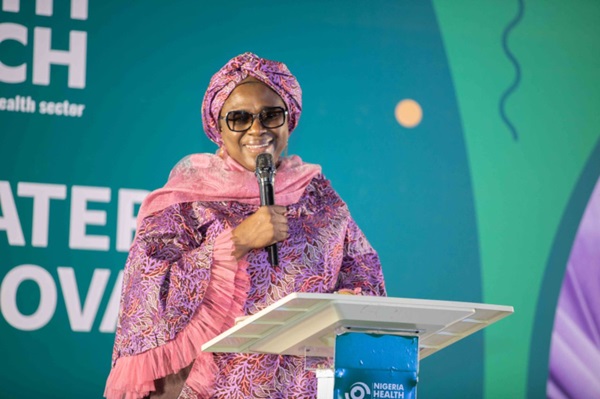
The Federal Government is intensifying efforts to bolster national development through targeted healthcare initiatives aimed at improving community health across Nigeria.
The special adviser to the President on Health, Dr. Salma Anas, highlighted these initiatives during the 2024 Maternal Health Policy Dialogue in Abuja, organized by Nigeria Health Watch.
Science Nigeria reports that Nigeria continues to face significant challenges in maternal health, ranking second globally in maternal deaths according to a 2023 World Health Organization report.
These stark statistics underscore the urgency of bridging the gap between current health outcomes and the Sustainable Development Goals (SDGs) target of fewer than 70 maternal deaths per 100,000 live births.
Anas emphasised innovative approaches such as E-MOTIVE, a postpartum hemorrhage management bundle, as pivotal in addressing systemic barriers like poor healthcare access, financial constraints, and inadequate transportation infrastructure that hinder maternal healthcare.
“The commitment of President Bola Ahmed Tinubu to driving community-centric health solutions is pivotal to our national development agenda.
“Improving human resources for health and fostering local production of medicines and equipment are critical in maternal health issues.
“These policies aims to tackle maternal mortality, enhance data transparency, and strengthen partnerships to maximise impact,” she said.
She underscored the integral role of healthcare in societal progress.
She detailed recent policy innovations tailored to enhance healthcare accessibility and quality at the grassroots level, stressing the importance of local community engagement in decision-making and implementation processes.
“Advancements in digital health, telemedicine solutions, and robust data management systems are revolutionising healthcare delivery, enhancing transparency, efficiency, and accessibility across Nigeria.
“The focus remains steadfast on improving women’s health through targeted maternal care programs and reproductive health services.
“Success stories abound, demonstrating measurable impacts on the lives of women and families nationwide.
“Collaborations with international organizations, NGOs, and local stakeholders are pivotal in scaling successful healthcare interventions, leveraging resources and expertise for sustainable healthcare outcomes,” she said.
Looking ahead, she outlined ongoing efforts and future plans to expand these initiatives, emphasising the critical role of continued stakeholder support and collaboration.
In her remarks, Managing Director of Nigeria Health Watch, Mrs. Vivianne Ihekweazu, echoed the call for innovative solutions to combat Nigeria’s alarming maternal mortality rates.
Ihekweazu stressed the urgent need for evidence-based approaches and increased funding to broaden the impact of successful maternal health innovations.
According to her, Access to quality maternal healthcare should not be a privilege; it is a right, and every woman should have this access, irrespective of where she is.
She said that the degree of care and attention a country devotes to maternal health, such as safeguarding women’s health and well-being throughout pregnancy, delivery, and the postpartum period, often demonstrates how much it values its people.
Ihekweazu further said that throughout the maternal policy dialogue, she noted that Nigeria Health aimed to increase awareness about successful maternal health innovations like the E-MOTIVE bundle of care, identify policy recommendations, and strengthen stakeholder collaboration.
The dialogue concluded with a resounding call to action, urging stakeholders to participate actively in scaling up impactful projects and strategies to improve maternal health outcomes nationwide.

